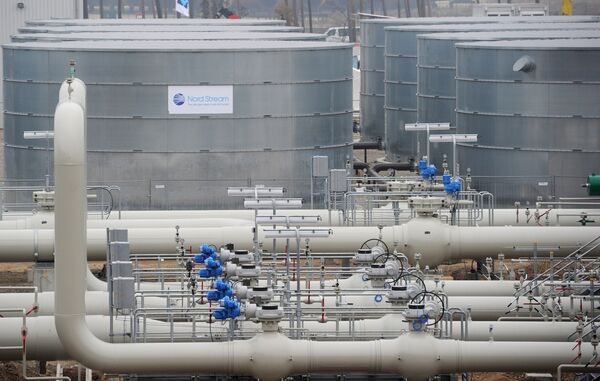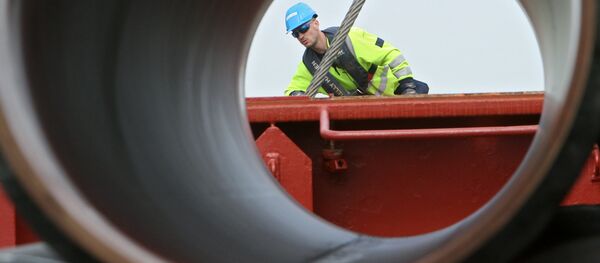"We were expecting greater solidarity from the German side. The fact that there would be a gas pipeline between Russia and Germany bypassing Poland harms not only Polish interests, this also increases the dependence on Russia. Our relationship with Germany resembles a marriage — we love each other, but minor quarrels arise sometimes," Duda told the German Spiegel Magazine.
The Nord Stream 2 plans to use the original Nord Stream pipeline for 86 percent of the route before branching off. It will have a capacity to transport up to 55 billion cubic meters of Russian gas to be supplied to European customers.
In September, Russian energy giant Gazprom started the project with a consortium of five large European energy companies, namely, BASF, EON, Engie, OMV and Shell.
A number of European senor officials, including Italian Prime Minister Matteo Renzi, European Commission Energy Union Vice President Maros Sefcovic and European Council President Donald Tusk said that implementation of the Nord Stream 2 project was likely to affect the bloc in one way or another.
Earlier this month, the Baltic states and Poland issued a joint letter to Brussels criticizing the construction of the Nord Stream 2.
In turn, Germany's special coordinator for Russia policy Gernot Erler said that the development of the Nord Stream 2 project would contribute to ensuring energy security in Europe.



